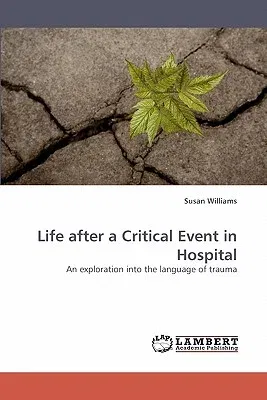Susan Williams
(Author)Life after a Critical Event in HospitalPaperback, 22 March 2010

Qty
1
Turbo
Ships in 2 - 3 days
In Stock
Free Delivery
Cash on Delivery
15 Days
Free Returns
Secure Checkout
Print Length
424 pages
Language
English
Publisher
LAP Lambert Academic Publishing
Date Published
22 Mar 2010
ISBN-10
3838335988
ISBN-13
9783838335988
Description
Product Details
Author:
Book Format:
Paperback
Country of Origin:
US
Date Published:
22 March 2010
Dimensions:
22.86 x
15.24 x
2.39 cm
ISBN-10:
3838335988
ISBN-13:
9783838335988
Language:
English
Location:
Saarbrucken
Pages:
424
Publisher:
Weight:
616.89 gm

